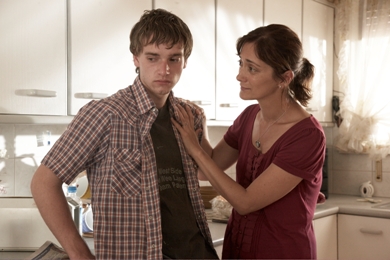A separation or divorce in the family is all too common now days with the divorce rate in Australia at almost 50%*. Many young people are placed in a situation where they need to learn new skills to cope with the changes. It can often bring out a mixture and extremes of emotions from sad to angry and it is very unsettling. There general mental health and wellbeing can be affected and they might need help adjusting.
Common reactions include:
- Feeling angry at the person who decided they no longer wanted to be in the marriage/relationship
- Feeling of helplessness about the situation they are finding themselves in
- Fear that they will be rejected by one or both parents
- Resentment about a new step parent being involved in the family
- Relief that there will be an end to the fighting
Tips to help young people cope with the challenges of a family breakup:
- It is important for parents to sit down and explain to their children at an age appropriate level why they have decided to separate. This will help the child understand that it is not their fault.
- Let the child know that it is normal to have a full range of emotions about the situation including anger and sadness.
- People decide to separate for many reasons, it is important not to talk about your problems with the child in case they feel the pressure to take sides.
- Try and make sure there are other family members, aunts, uncles and grandparents that are there for the children involved in the break up so they know they have someone they can go to who will listen to them and give them support.
- Let the child know that they can talk to a school counsellor or another professional if they need extra support coping with their feelings.
- Watch out for signs of depression (feeling sad, loss of interest in things they used to enjoy, withdrawing from social activities with friends) in the children involved and encourage them to keep up their interests and get help if they need it.
You can get more help and support from these services:
Kids Help Line 1800 55 1800
Beyondblue
Headspace
Relationships Australia
*Australian Psychological Society.
Writer Helen Splarn. Editor Dr Ramesh Manocha.
Source: Beyondblue. Headspace. Australian Psychological Society








I was wondering if I could get permission to print this article in our school newsletter?
we seem to have a lot of families going through seperation & an article like this could be very timely.
Hi Julie
yes, happy to approve it’s use on the proviso that the author is acknowledged, a link to the https://www.generationnext.com.au blog is provided and some encouragement is given to readers to sign up for our free newsletter so that they can receive more useful information like this
Ramesh
The ‘Tips to help’ above is good advice; however, in my experience young parents going through separation are rarely emotionally stable enough to put them into practice. Hence, we need to deal with the parents’ emotions before they can rationally interact with the children.
Separation is a loss and at least one of the parties, and often both, go through the grieving process described by Elisabeth Kübler-Ross. I have found working with young parents to get them to the ‘acceptance’ stage of the grieving process an excellent way to empower them to use the above ‘Tips’ to explain what is happening to their children and be less likely to use the children as a weapon to get back at the other partner.
Great advice. Do you know of any services that would run a program for young people about understanding and dealing with parents divorcing in a secondary school setting?
Hi. I came across this blog while doing some related research on the net. My background is that I am a family lawyer who no longer goes to court. Instead, for the last 3 years I have devoted my professional practice to making a meaningful contribution to harm minimisation for families that are expereincing parental separation. I do this by way of interdisciplinary collaborative team practice. In so doing, I work closely with child psychologists and know from first hand experience that children cope better when they have access to supports, ideally including professional support, so as to minimise the impact of the separation upon children. My view is that litigation and family law practiced the “old school” way is so damaging for families that we as a society need to be so much better at responding to these situations than we are at present. Initiatives like this website, amongst others, can be of real assistance to those in need. Good work!
Seasons for Growth offers support to young people in schools to help them cope with loss and grief.